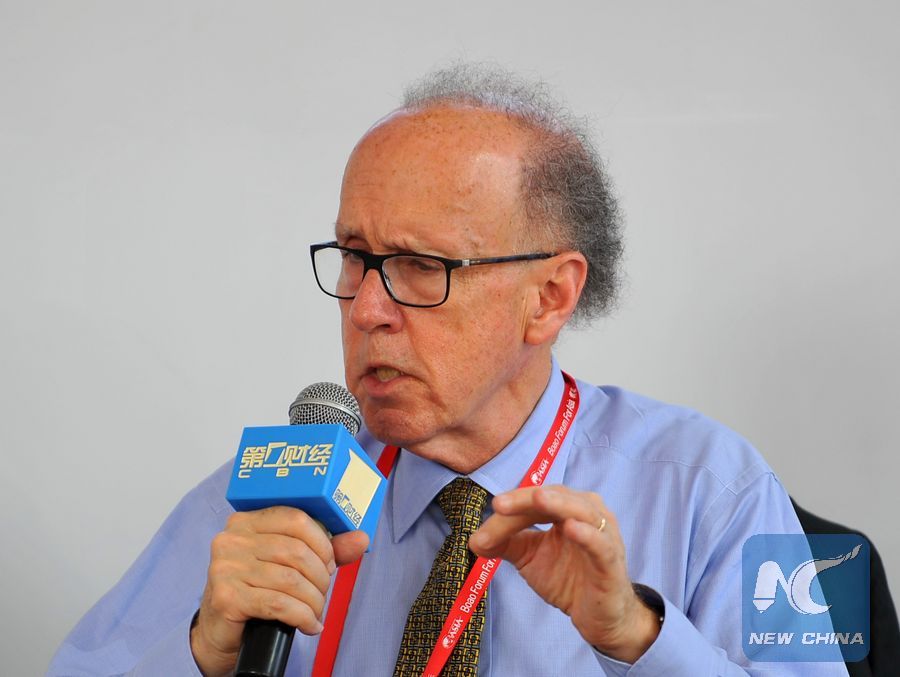
File photo: American economist Stephen Roach speaks at a TV debate at the Boao Forum for Asia (BFA) annual conference 2014 in Boao, south China's Hainan Province, April 9, 2014. (Xinhua/Chen Yehua)
NEW YORK, July 10 (Xinhua) -- The attempt to decouple China from the United States or the broader global economy is "both absurd and dangerous," a leading U.S. economist said.
"By eliminating China both as a major source of global growth as well as a major impetus behind the expansion of global value chains, there can only be further downside to an already sluggish post-crisis global economy," said Stephen Roach, a senior fellow at Yale University's Jackson Institute of Global Affairs, in a recent email interview with Xinhua.
"In the past 11 years, 2008-2018, China has accounted for fully 37 percent of the average 3.4 percent growth in the global economy," about five times the share of the U.S. contribution to the global growth over the same period, Roach said.
The U.S. economist emphasized the crucial role of global trade expansion in the rise of global output, noting that trade linkages have undergone an important shift from finished goods to supply-chain piecemeal production over the recent years.
Citing the latest Global Value Chain (GVC) Development Report released by the World Bank, Roach, who is also a longtime China watcher, said that China is "playing an increasingly important role as a supply and demand hub in GVC networks."
Given the crucial role that China has played in the global economy and supply chain, Roach cautioned that Chinese decoupling is "destructive" and "could well be the ultimate lose-lose scenario for the world economy."
Commenting on the recent development concerning U.S.-China economic relations, Roach said that both sides have agreed "to stand down from the worrisome escalation of economic conflict," which "is certainly good news," as it ruled out the alternative of expanded tariffs and company-specific sanctions while deciding to resume trade negotiations.
"Converting distrust back into trust is an important first step on the road to a strategic partnership," he noted, adding that both sides should be poised for brave formidable challenges ahead in order to foster a more constructive relationship.
While "a win-win alternative is hard to create out of thin air," the economist pointed out that taking the opportunity to fix domestic problems "rather than attacking the other as existential threats to national goals" would be more helpful on this front.
A win-win solution for the United States and China can only occur "if the balance is shifted away from destructive perceptions of the external threat back toward the constructive opportunities of meeting domestic challenges head on," he added.

